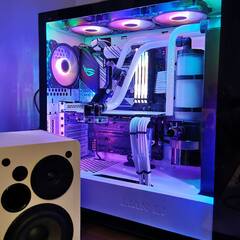Is Dual booting really that "dangerous"
-
Topics
-
worstalentscout ·
Posted in Storage Devices0 -
0
-
vortexx21 ·
Posted in Power Supplies3 -
0
-
0
-
Hellowpplz ·
Posted in New Builds and Planning0 -
Atheos ·
Posted in Peripherals0 -
9
-
johnny45 ·
Posted in Linux, macOS and Everything Not-Windows0 -
DJpanda808 ·
Posted in Displays2
-
















Create an account or sign in to comment
You need to be a member in order to leave a comment
Create an account
Sign up for a new account in our community. It's easy!
Register a new accountSign in
Already have an account? Sign in here.
Sign In Now